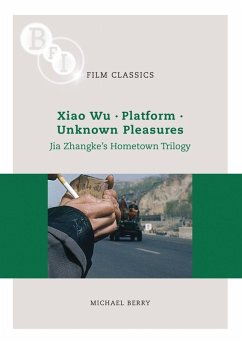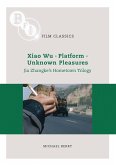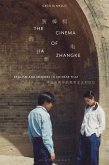The three films comprising director Jia Zhangke's 'Hometown Trilogy' - Xiao Wu (1997), Platform (2000) and Unknown Pleasures(2002) - represent key contributions to the cinema of contemporary China. The films, which are set in Jia's home province of Shanxi, highlight the plight of marginalised individuals - singers, dancers, pickpockets, prostitutes and drifters - as they struggle to navigate through the radically transforming terrain of contemporary China. Xiao Wu tells the story of a small-time pickpocket who faces the breakdown of his relationships with his friends, family and girlfriend. Platform, often considered Jia's most ambitious film, is an epic narrative that bears witness to China's roaring eighties and the radical transformation from socialism to capitalism. Jia's third feature, Unknown Pleasures continues his meditation on China in transition, tracing the story of two delinquent teenagers who live on a diet of saccharine Chinese pop music, karaoke, Pulp Fiction, and Coca-Cola while entertaining pipe dreams of joining the army and becoming small-time gangsters.
Michael Berry's in-depth study of the three films considers them as an ambitious attempt to re-examine the transformation and fate of provincial China - its places and people - as it is caught up in a whirlwind of sweeping social, cultural and economic change. At the heart of the book lies a series of close readings of each of the three films; through which Berry teases out their central narrative themes, highlighting Jia's use of editing, cinematic language, and mise en scene. He pays special attention to the place of intertextuality in Jia's oeuvre, as well as the central themes of destruction and change, stagnation and movement, political verses popular culture, and, of course, the ceaseless search for home.
Michael Berry is Associate Professor of Contemporary Chinese Cultural Studies at the University of California, Santa Barbara. He is the author of Speaking in Images: Interviews with Contemporary Chinese Filmmakers (2005), and A History of Pain: Trauma in Modern Chinese Literature and Film (2008). He is also the translator of several novels, including The Song of Everlasting Sorrow (2008), To Live (2004), Nanjing 1937: A Love Story (2002), and Wild Kids (2000).
Michael Berry's in-depth study of the three films considers them as an ambitious attempt to re-examine the transformation and fate of provincial China - its places and people - as it is caught up in a whirlwind of sweeping social, cultural and economic change. At the heart of the book lies a series of close readings of each of the three films; through which Berry teases out their central narrative themes, highlighting Jia's use of editing, cinematic language, and mise en scene. He pays special attention to the place of intertextuality in Jia's oeuvre, as well as the central themes of destruction and change, stagnation and movement, political verses popular culture, and, of course, the ceaseless search for home.
Michael Berry is Associate Professor of Contemporary Chinese Cultural Studies at the University of California, Santa Barbara. He is the author of Speaking in Images: Interviews with Contemporary Chinese Filmmakers (2005), and A History of Pain: Trauma in Modern Chinese Literature and Film (2008). He is also the translator of several novels, including The Song of Everlasting Sorrow (2008), To Live (2004), Nanjing 1937: A Love Story (2002), and Wild Kids (2000).









